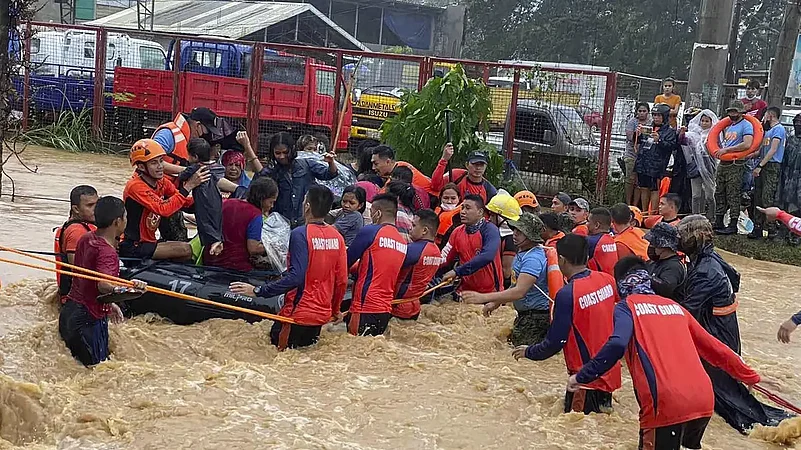A tropical storm blew out of the northern Philippines on Wednesday, leaving at least three people injured and thousands displaced and prompting authorities to shut down schools and government offices in the capital and several provinces prone to flooding and landslides.
Tropical Storm Ma-on weakened slightly after barrelling across mountainous northern provinces then exited overnight with sustained winds of 95 kilometers per hour and gusts of up to 115 kph after making landfall in Maconacon town in Isabela province Tuesday morning, forecasters said.
The storm may intensify at sea as it heads toward southern China, they said.
Although the storm's onslaught was felt mainly in the northern tip of the main Luzon region, President Ferdinand Marcos Jr. suspended classes in all public schools and government work from Tuesday to Wednesday in the densely populated Manila metropolis and several outlying provinces as a precaution amid pockets of flooding and strong wind.
"The heavy rains pose possible risks to the general public," press secretary Trixie Cruz-Angeles said Tuesday.
The school closures came after millions of primary and secondary students trooped back to schools across the Philippines on Monday for their first face-to-face classes after two years of coronavirus lockdowns.
The storm was among perennial problems education officials grappled with, along with classroom shortages, alarming illiteracy rate among children and lingering coronavirus threats after deciding to reopen schools nationwide.
Three villagers were injured and taken to hospitals after being hit by falling trees in Cagayan province, safety officer Rueli Rapsing said, adding more than 7,000 people were evacuated from villages that were prone to flash floods, landslides and tidal surges in Cagayan alone.
Some of the provinces which felt the brunt of the storm were still recovering from the devastation caused by a powerful earthquake last month, sparking concerns quake-loosened mountainsides would be more susceptible to landslides.
The Philippines is battered by about 20 typhoons and tropical storms each year and lies in the Pacific "Ring of Fire," a seismically active arc of volcanoes and fault lines in the Pacific Basin, making the archipelago one of the most disaster-prone countries in the world.





















